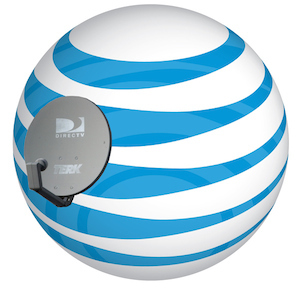Netflix To FCC: You Should Block The AT&T/DirecTV Merger Unless Conditions Are Added

AT&T and DirecTV announced their big corporate betrothal the better part of a year ago. The planned merger between the two companies has, comparatively speaking, flown under the radar as so much time and attention fell to the now-collapsed Comcast/TWC plans. But now that the 30-million ton elephant has left the merger room, all eyes are swiveling back to the other looming giant.
Way back in 2014, Netflix said to the FCC (PDF) that there were threats and potential harms in the AT&T/DirecTV merger, and asked for significant conditions to mitigate them to be placed on any approval. However, as the likelihood of a decision one way or another looms nearer, Netflix has changed its tune.
In a new filing (PDF), Netflix urges the FCC to block the merger “as currently proposed.” If the timing of the change in tone, right after the demise of the Comcast merger, seems a little too suspicious to be completely coincidental, that’s because it’s not. The specter of the not-gonna-happen cable merger appears more than once.
The filing lays out the big red video company’s arguments for why the merger should be blocked in its current form.
Basically, says Netflix, the merged company would have both the ability and incentive to harm online video distributors (like Netflix). Since Comcast/TWC is out of the picture, Netflix says, a post-merger AT&T/DirecTV would be the nation’s biggest MVPD (cable, satellite, or fiber pay-TV company). And to an MVPD, Netflix is pure competition.
Add that to the fact that post-merger AT&T also plans hugely to expand their broadband coverage, and it becomes a potential recipe for disaster.
“AT&T already has demonstrated ability to harm OVDs by leveraging its control over interconnection to degrade its own customers’ access to Netflix service,” Netflix points out. And indeed, AT&T U-verse customers were getting absolutely horrible Netflix speeds until a dramatic, sudden leap in quality after Netflix paid AT&T an interconnection fee last year.
AT&T, Netflix also adds, is pretty fond of data caps on home broadband service. And while net neutrality might prevent them actually throttling competition, promotions like zero-rating could still allow AT&T/DirecTV to give their own streaming services an edge and push competitors like Netflix out.
Netflix concludes that although AT&T and DirecTV say they would not have the incentive to cause such harms, they totally actually would. “If AT&T is able to slow the development of the OVD industry, either by foreclosing access to broadband customers or imposing discriminatory data caps,” Netflix says, “AT&T would be able to preserve its market advantage by slowing or even reversing the shift toward competitive online video offering and away from bundled video/broadband offerings.”
And, Netflix adds, switching ISPs is a pain in the butt, even for those few who can actually do it — so consumers might not have the recourse of simply taking their business elsewhere.
As for whether the FCC will agree with Netflix, that still remains very much in the air. The informal 18-day shot clock at the agency has been paused since March, as the commission tries to wrangle its way through the legal ins and outs of a big pile of confidential industry data and the companies that don’t want to share it.
While Netflix’s FCC filing clearly states that “Netflix urges the Commission to reject the merger as currently proposed,” the company is not being as resolute in the comments it makes to the media.
In a statement to Ars Technica, Netflix only adds confusion to its stance on the AT&T/DirecTV deal, claiming that it is “not opposing the merger… We’ve been highlighting concerns about AT&T’s broadband practices and the need for appropriate remedies since last September.”
Want more consumer news? Visit our parent organization, Consumer Reports, for the latest on scams, recalls, and other consumer issues.

